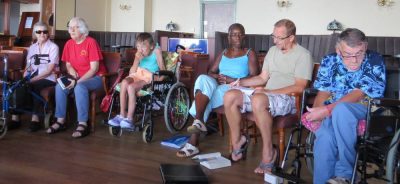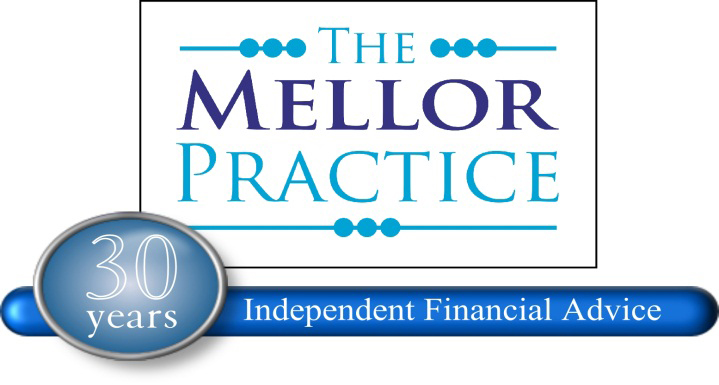Wheels at Work in Uganda
Looking for a taste of our Wheels for the World work? Photographer and blogger Phil Green has produced several videos showing stories from one of our distributions in Uganda. Here's the first of the set -- we'll be putting more online over the next few weeks. We hope you enjoy finding out more about how Wheels works, and the extraordinary people you've helped.
Wheels for the world - This is Uganda from Philip Green on Vimeo.
Tee Off for the TTR Golf Day

Through the Roof will be hosting a unique 4-in-1 golf day on Thursday 8th May at Tyrrells Wood Golf Club in Leatherhead. Come along and show off your skills, or enjoy a day of socialising with other players, all while raising funds for TTR's work.
There'll be ...
- An 18 Holes Stableford Competition, sponsored by Beigebell
- A Blindfolded Putting Competition
- A Wheelchair-seated Longest Drive Competition, sponsored by The Mellor Practice
- A Wii Golf Challenge
- Sponsorship by Benross Golf
Something to challenge everybody!
The day will cost £65 per head, which includes:
- Coffee and bacon rolls on arrival (registration from 8am)
- Competitions (as above, plus 'nearest the pin' and longest drive: Men and Women)
- Two course lunch
If you're interested in taking part, either as an individual or part of a group, please contact Margaret at Through the Roof on 01372 749955, or by following this link to email her.
Sponsored by...
Photo of a golf ball on the tee credit:
chispita_666 /
Creative Commons
Tweet
!function(d,s,id){var js,fjs=d.getElementsByTagName(s)[0];if(!d.getElementById(id)){js=d.createElement(s);js.id=id;js.src="//platform.twitter.com/widgets.js";fjs.parentNode.insertBefore(js,fjs);}}(document,"script","twitter-wjs");
Cinematic Experience

While Will and I were still in the dating phase of our relationship, we went to the cinema a few times. A couple of times we went to see films in the company of my nieces and nephews. But twice we went on our own. If you’re wondering why 2 blind people would want to go to the cinema and what we could possibly get out of it, let me explain. At specific times and dates, cinemas will hold an 'audio described' showing of the films. This means that people with visual impairments are given a headset to wear. When they put this on, every action in the movie which is not obvious by the dialogue is described. For example 'she crosses the dark room and flicks on the light' or 'he shakes his head and shrugs his shoulders' - all the little things that sighted people will see without realizing they’ve seen it, but which is essential in the plot of the movie are described to us. This is also available on TV and some DVDs.
The first time we went on our own was to see ‘Les Mis’. The staff took us to the screen, sat us down and promised to come and get us at the end. They did, and everything ran to plan. We felt empowered and keen to go again. So, we booked into see ‘A Song For Marion’. We had sent my parents to see it for their wedding anniversary and they recommended it. It all went smoothly. We were shown into the seats, and left with our headsets to enjoy the film. I have to say it was one of the best movies I have ever seen! We both really enjoyed it! The end came and people began to file out of the screen. We waited for the staff member to come and get us. Pretty soon, everyone had left and we were the only ones in the room. We thought, “they are bound to come and get us in a minute”...
After the final credits and music of the movie had finished, there was an eerie silence. Followed by a few hisses from the speakers! Then nothing. 10 minutes went by. From childhood, I have always hated total silence. I think it is because I can’t see, I rely so much on my ears to tell me what’s around. I always used to go to sleep with a tape on, and even now I need something humming in the background to feel comfortable. This was the most complete silence that I could ever imagine. Will and I sat in our seats, feeling more and more on edge. Then, there was a whistling sound outside the door as if someone was standing there. We thought “aha! He’ll come in in a minute”. Another 2 or 3 passed and nothing.
My Mum was due to pick us up so I took out my phone (remembering why I never leave the house without it) and called her. I told her “no one has come to get us. We are on our own in the screen, can you ask them to come and find us?” We then had a few more minutes of suffocating silence before the screen door opened. Mum and a member of staff came in. We were so pleased to hear another human being.
When we were out in the reception area, we said to the staff member “we were taken in by one of your staff, so why did no one come to get us?” she replied that she wasn’t sure. We explained that we had heard someone whistling outside the door and the staff member said “oh, that was the cleaner. He’s not allowed in the screen while there are people in there, he would have eventually had to send for someone to investigate why you weren’t coming out”. Well, that’s a comforting thought! We left feeling shaken and sent a letter to customer services. They took a look at the cctv and after apologizing, gave us 4 free tickets to use on a show. In other words, so we could take 2 carers with us. After a bit of negotiating, we got them to agree that we could use the tickets on 2 different shows if we wanted to come alone. However, after that experience, when we next went to the cinema it was in the company of several other people. I don’t think we’ll chance it on our own for a while, though it’s still a great thing to do and we enjoy it!
(The photo of two people alone in a cinema is  licensed under a Creative Commons Attribution-ShareAlike 2.0 Generic License and taken by Flickr user Silveiraneto).
licensed under a Creative Commons Attribution-ShareAlike 2.0 Generic License and taken by Flickr user Silveiraneto).
Tweet
!function(d,s,id){var js,fjs=d.getElementsByTagName(s)[0];if(!d.getElementById(id)){js=d.createElement(s);js.id=id;js.src="//platform.twitter.com/widgets.js";fjs.parentNode.insertBefore(js,fjs);}}(document,"script","twitter-wjs");
There's a Word For It (Ros' Blog)

At my church this year we’re studying the Gospel of John. Taking a year over it means we have the opportunity to explore the book in some depth, and I am enjoying spending a couple of weeks over a chapter.
Matthew, Mark and Luke told the story of Jesus. They filled their Gospels with details of His circumstances, the stories He told and the miracles He performed. They presented Him and let the facts speak for themselves, so that people could draw their own conclusions about His divinity. Matthew, in his eagerness to present a clear picture of Jesus as the Messiah – The One who is promised – packs in as many stories as he can in as few words as possible, often giving only the sketchiest outline of an incident, or even perhaps conflating two episodes into one.
John, by contrast, is less interested in presenting a multitude of facts than in interpreting Jesus to us. He comments a good deal more on the narrative, and he offers us the sayings of Jesus at considerable length, especially in chapters 14 - 17. And in the opening of his Gospel, he is concerned to present God as the creator and Jesus as the re-creator.
John’s Gospel begins, as we all know, with “In the beginning was the Word.” I have been thinking about some of what John had in mind by calling Jesus “the Word”. Just as “in the beginning” God spoke “let there be…” and the physical world was created, in the beginning of His new creation God spoke a Word which would recreate all that had been damaged in the Fall when humans rebelled against God.
Jesus, He tells us, is the Word who is from the beginning, the Word who is with God and indeed is God. Or in other words, Jesus represents what God most longs to say to us. And if we have ears to hear, each of us will hear that Word spoken to us. We will not all hear the same thing, for as at the Day of Pentecost, each of us hears the Word in his or her own language.
The prisoner hears, “free”. Those imprisoned by circumstances or by the words and actions of others can still know the true freedom that Christ brings. The dead hears, “life”. Whether the spiritually dead who receive life as they open their ears and hearts to Jesus, or the literally dead who are promised resurrection bodies. The rejected person hears, “chosen”.
The despised person hears, “valued”. The blind person hears, “light”. That might happen literally, like the man in John 9 who was blind from birth until Jesus gave him the gift of sight. Or it might happen, as it did for Fanny Crosby who never saw in this life, but could still pen the words, “Visions of rapture burst on my sight.”
The deaf person hears, “song”. Again, there are examples where that has happened very literally in response to God’s healing touch; but other examples where a lack of physical hearing has led to a great sensitivity in hearing God.
The child hears, “come”. The hater hears, “forgiven”. The troubled person hears, “peace”. The fearful person hears, “hope”. The broken-hearted person hears, “joy”. The cynic hears, “truth”. The betrayed person hears, “faithful”. The person who believes herself ugly hears, “beautiful”. The weak person hears, “strong”. The poor person hears, “rich”.
The one who cannot walk hears, “leap, leap like a deer”! Some may do so here and now, like the man in Acts 3 who was healed and went walking, leaping and praising God. Others may not see that in this life. But, like the little girl who was repeatedly told to sit down, and eventually sat down grudgingly with the words “I’m sitting down on the outside, but I’m standing up on the inside!” many of my wheelchair-using friends have already heard a word from Jesus, an invitation to dance, and are dancing on the inside.
I would like to encourage you to take some time in stillness to read through the opening verses of John’s Gospel and in the silence ask God what is His word to you right now. And remember that whatever He says to you, it doesn’t come in the form of a disembodied word, but it is Jesus, who is the Word of God, who comes to you Himself.
Image by Viktor Hanacek from Picjumbo
Tweet
!function(d,s,id){var js,fjs=d.getElementsByTagName(s)[0];if(!d.getElementById(id)){js=d.createElement(s);js.id=id;js.src="//platform.twitter.com/widgets.js";fjs.parentNode.insertBefore(js,fjs);}}(document,"script","twitter-wjs");
'The Hope of Extraordinary Power' - Feb 2014
Here's the February 2014 'Come Fishing' recording from Jenny Edwards and DCF - an hour full of music, prayer, inspiration, stories and news, to entertain and inspire.
Recycle for TTR

Please recycle your empty printer inkjet cartridges and mobile phones for us.
It's a really simple way of raising funds towards our work - Just sign up to Recycle4Charity, order your free envelopes, and off you go.
Why not also distribute freepost recycling envelopes to friends, family or around the workplace?
No cost to you, no cost to us, but we'll receive a donation for every cartridge and/or phone.
Thank you!
Tweet
!function(d,s,id){var js,fjs=d.getElementsByTagName(s)[0];if(!d.getElementById(id)){js=d.createElement(s);js.id=id;js.src="//platform.twitter.com/widgets.js";fjs.parentNode.insertBefore(js,fjs);}}(document,"script","twitter-wjs");
Everyone Complete in Christ

by Ros Dakin, Training Resources Developer. This post was originally featured on her own blog - take a look by following this link
I recently applied (successfully, praise God!) for the job of Training Resources Developer with Through the Roof, a charity whose mission is to change lives through disabled people; a mission it accomplishes by providing life-changing opportunities for disabled people, and equipping churches to do the same. As part of the interview process I had to prepare a presentation which included a Biblical theology of disability.
I have been teaching disability awareness in schools and colleges for many years, but I had never before sat down and thought through the Biblical basis for what I was so passionate about. Here are some of my thoughts – not all of which could be included in my presentation because of time, but all of which I wrote down and thought through as part of my preparation.
When we look at the Biblical basis for anything, our first starting point has to be Jesus. He was the most inclusive person ever to walk this earth. He embraced the other gender (women, obviously!), people of other ethnicities (such as the Syro-Phoenician woman whose daughter he healed), other faiths (such as the centurion who undoubtedly worshipped Roman gods) and those of other social classes (such as tax collectors and prostitutes). Some have even argued that, in Roman culture, it’s highly likely that the servant healed by Jesus was also the centurion’s gay partner. Certainly Jesus had no hesitation in welcoming unreservedly people whose behaviour he could not and did not sanction, such as the woman taken in adultery, or the young ruler whose greed held him captive to his money.
In particular, Jesus always saw beyond the disability to the whole person. That’s why he did not allow the woman who touched the hem of his garment to slink away anonymously but called her forward publicly, honoured her faith, and ensured that she was not simply physically healed, but made whole. Whereas the church has at times seen disabled people as a collection of body parts – blind eyes in need of sight, perhaps, or cerebral palsied legs in need of healing and strength. I am personally convinced that healing is a part of what Jesus’ atonement won for us, and I am committed to praying for people to be healed, and expecting to see God’s power at work in them. I am also convinced of God’s sovereignty and that He doesn’t have to deal with everyone I encounter in the way that I tell Him to!
The trouble is that often, in our eagerness to see disabled people healed we, the non-disabled members of Christ’s church, have overlooked their current worth and potential, and have given them the message “you’re not acceptable the way you are” – and I’m certain that Jesus never made anybody feel that way. On the contrary, in one of His parables, Jesus mentioned disabled people as those who should be given pride of place at the feast table in His kingdom. As we read the Gospel accounts of his encounters with disabled people, it’s easy to picture the delight on His face as He set them free not just from their physical limitations, but from the limiting self-image their disability had imposed on them, and showed them the glory of their true self as God had first created them to be.
There are some Old Testament stories, too, that should inform our attitudes towards disabled members of our communities. When David became king of Israel, he looked for someone of the house of Saul to whom he could show kindness for his friend Jonathan’s sake. The only surviving member of Saul’s family was Mephibosheth. At the time of the overthrow of Saul’s house, his nurse had picked him up to run to safety but had fallen with him in her arms, leaving him with a permanent disability. David welcomed him as part of his household, and for the rest of his life he ate at the king’s own table. It struck me as I read this passage in 2 Samuel 9 firstly, that David did not pity Mephibosheth because of his disability. It was who he was – Jonathan’s son – that dictated David’s response to him. His disability was irrelevant. Secondly, when David discovered that Saul’s only living relative was a disabled man, that didn’t alter his intent towards him. He honoured him exactly as he would have done if he had been a strong warrior. And finally, the whole story provides a wonderful metaphor for the church, with disabled and non-disabled people seated side by side, with equal honour, at the table in God’s kingdom.
I also looked at the story in 2 Kings 7 of four men with a contagious skin disease who were living as outcasts from the community of Israel. At a time when their own people were reduced to such a level of starvation that they had actually resorted, in their desperation, to cannibalism, these four men discovered the enemy camp deserted and full of food and other spoils and provisions. Rather than keep this good fortune to themselves, they said, “We are not doing right. This day is a day of good news, but we are keeping silent; if we wait until morning light, punishment will overtake us. Now therefore come, let us go and tell the king’s household.” So they went and shared their good news with the rest of their community. This strikes me as a very powerful metaphor for the church, with disabled people not seen as outcasts or victims to be pitied, but as active contributors to the life and health of God’s people.
I also thought about St Paul’s vision for the church. In Colossians 1.28 he sets out his mission statement, “To present everyone complete in Christ.” Every time someone new comes through the doors of our church or expresses a desire to add themselves to us, we should be asking, “What does this person need, to become complete in Christ?” It would be silly to ask what do disabled people need to become complete in Christ – a bit like asking what do the blue-eyed, or the left-handed, need to become complete in Christ? The answer is that we are all individuals, each with our own relationship with God. As with anyone else in the church, a disabled church member needs people to get to know them, to learn what their gifting is, where they can serve and build up the church, and what their weaker areas are, where they could use support and encouragement from the rest of the body of Christ.
Legend has it that in Mediaeval France the Catholic Church taught that people with learning disabilities were placed by God in communities in order that people should be able to reverence and honour them as they would reverence and honour Christ Himself. These people became known as “Chréstiens”, Little Christs. This word – at first with no derogatory connotation – came into the English language as the word cretin, which sadly, like so many other terms surrounding disability, became devalued, and degenerated into an offensive insult.
It is very important that as we seek to allow disabled people to play their full part in the life of the church, we make sure to use inclusive language. When I was the Disability Advisor at a College of Further Education, I attempted to ban the use of the term “special needs” because it seemed to me to be just another way of isolating disabled students and making them feel different from everybody else, and because I had heard children in the playground at my daughter’s school hurling it as a term of abuse at one another. The origin of the term “handicapped” is in dispute, but one possibility is that it dates back to the days when it was thought that disabled people were fit only to beg for a living, and would sit patiently hoping that you would place your hand in their cap with a donation for them. For this reason, handicapped is felt quite keenly by many disabled people as a demeaning term, and I would like to see it eliminated from our vocabulary as Christians. If this seems like “political correctness gone mad” it’s worth considering the words of Jesus, that “out of the overflow of the heart the mouth speaks”. It’s the language we use casually and unthinkingly that reveals the attitudes we really harbour in our hearts towards one another.
In preparing my presentation, I reflected on a book I read many years ago, the autobiography of Rev Alyn Haskey who I was privileged to meet a few times before his sad death last year. In his book he described an incident when he was training for ordination. All the students were in the dining hall when the fire alarm sounded. They all jumped up and evacuated the building leaving Alyn, who could not propel his own wheelchair, sitting at the table. A few minutes later one of his fellow students came running back in very upset and said, “I’m so sorry Alyn, I forgot you were in a wheelchair!” Alyn observed that it was one of the best moments of his life, because people had stopped seeing his wheelchair and were seeing him for the person that he really was.
So for me it’s going to be a real privilege to serve the body of Christ in my new role by helping churches to see the wealth of gift and beauty that God has placed among them in the form of many disabled people.
'The Father Listens' - The January 2014 Come Fishing

Here's the January 2014 'Come Fishing' recording from Jenny Edwards and DCF - an hour packed full with music, prayer, inspiration, stories and news, to bring in the new year.
Subscribe to Come Fishing in an RSS Reader or Podcast Catcher
(The photo on the page shows a group of DCF holidaygoers chatting on the Babbacombe holiday)
Tweet
!function(d,s,id){var js,fjs=d.getElementsByTagName(s)[0];if(!d.getElementById(id)){js=d.createElement(s);js.id=id;js.src="//platform.twitter.com/widgets.js";fjs.parentNode.insertBefore(js,fjs);}}(document,"script","twitter-wjs");
International Missions Day - 1st March 2014

All Welcome! Anyone interested in International Mission at Through the Roof is invited to attend this day - from supporters to current team members, past team members to people just wondering what we're all about!
This will be an opportunity to :
- Meet together with old and new friends
- Share ideas and opportunities for International Mission
- Pray and discuss ideas for the year ahead
Date: Saturday 1st March
Venue: Through the Roof Office - Unit B1, Aviary Court, 138 Miles Road, Epsom KT19 9AB
Time: 10am- 2.30pm
(Tea, coffee and a light lunch will be provided)
The day will begin with a chance to pray for the current partners, countries, teams and work of Through the Roof, followed by a presentation. We'll then divide into groups to share ideas and draft an action plan for the future. By the end of the day we should all have a shared vision for international mission in 2014.
Please bring your ideas, prayers and suggestions for us to share together. We'd be grateful for numbers in advance so we can plan refreshments etc. Contact Reninca either by email at Reninca@throughtheroof.org
or direct line 01372 737 044
Christmas Reflections
When I was born just after Christmas 25 years ago, my parents were in deep shock to find that I had no eyes.
As a result of my lack of sight, my mum said it felt like I was her first baby, not her 7th. She said that not being able to make eye contact with me, was so hard. For one thing, each time she went to pick me up I would jump and cry because I had been startled by 2 hands coming from nowhere!
Mum and dad learned to adapt, and to do things slightly different, for example, talking to me as they walked towards me so that I would know they were there before they picked me up. Mum told me recently that when she thought about Christmas for the first few years after I was born, she really struggled to know what to get me. She said she didn’t know how I would ever like christmas, since she new I couldn’t see the pretty lights and decorations, or look at the christmas tree, or peak at the brightly wrapped presents underneath it. She couldn’t buy me picture books, or toys or games that required reading or visual cues. I have no idea why she was worried though, since from as far back as I can remember, I have always loved Christmas!
I still look forward to it each year with the same excitement I had as a child! When people tell me that “christmas is really for the kids” I strongly disagree! Maybe that means I’m more in touch with my inner child than with my outer adult, but it doesn’t bother me! I love the smells at christmas: oranges are normally eaten in abundance at this time, and although I don’t like them myself, the smell of them reminds me of christmas.
My mum has always made her own christmas cake, and the smells of the mixed fruit ad sherry it contains as it cooks spreads right through the house. We also make stuffing, and I remember being allowed to feed the blender with bits of bread, slices of onion, and bunches of parsley under the close supervision of my parents or sisters when I was younger. Chopped parsley and onion have their own, very strong smell which is great for the sinuses if you happen to have a cold. The scent of the tree (we always had a real one for this reason) combined with the distinctive smell and crackle of the open fire and all the other delicious odors combined to make a special christmas perfume which I wish I could bottle. I would probably call it “Christmas Cocktail”.
The sounds at Christmas are also important to me. As I have said, mum likes to cook her own christmas cakes, and she also cooks her own christmas puddings. She starts the cake in early October to give it time to mature. The christmas pudding normally gets cooked at the beginning of November, and the sound of hissing pressure cookers has always been to me one of the first audible signs that Christmas is on its way again at long last! They hiss so loud that it makes everything sound slightly muffled, a bit like an old film or radio program when the quality wasn’t quite as good as today's. I love the carols at christmas, and of course, the atmosphere when shopping is amazing! I used to be really good and do all my Christmas shopping in October. I loved the hustle and bustle of the streets which were not too crowded then. This year however, what with the wedding, Christmas sort of crept up on me! So I was shopping right up to christmas eve! But its still fun!
I love the thrill of buying someone something you know they will like, and wrapping it up wondering what they will say when they open it! I put a lot of thought into presents, and love giving them as much as receiving them!
One of the things I’ve always longed to do, and God willing its an ambition I’ll realize this year, is to sing Christmas carols in somewhere like the Grand Arcade Cambridge where the acoustics are amazing, and raise money for TTR while singing my favorite carols! I have always thought the sound of live music is one of the best things ever! Especially at christmas time. It seems to make everybody happier somehow. One of the advantages of living on a village market square is that we hear anyone who comes to carol sing on the square from our sitting room, and can stand outside our front door and enjoy it! That’s what I did this year when the local middle school came to sing! It was lovely!
Our church also takes a stand on the square at the christmas market and sing carols, and give out leaflets on our christmas services!. For a couple of years, we did door to door carol singing. Another christmas highlight for me is carols round my parents house. We wheel the piano into the kitchen, get some chairs from church and fetch down the carol books and invite people to come and sing with us!
This year as well as the gathering with the church people, we did a lot of singing as a family. We haven’t had the opportunity before since none of us play the piano, but since I have married an organist who doesn’t mind playing the piano, problem solved! Another thing I love is the family togetherness! We have a big family, and its normally at christmas that everyone gets together. It means my mum cooks for upwards of 30 people, and you basically have to fight for a spare chair and guard it with your life, but its a lot of fun! Of course then, there’s the food!!! I absolutely love turkey! And although I don’t like christmas pudding or christmas cake, I am very partial to some ice cream and condensed milk, which I only let myself indulge in over Christmas! All the sausage rolls for tea, chocolate log, and caramel squares too! Plus the sound of the children laughing and playing with their new presents and pulling crackers is magical! I’ve always loved the sound of unwrapping presents, and especially as we all open ours at once. Its all chatter and laughter and paper ripping everywhere and it is such a special atmosphere to me!
I never put my presents away until the new year, I keep the stocking my mum gives me in its bag and add in all the presents I get from other people too, just to make it last that bit longer. I suppose I’m afraid that if I put them away, it will feel less like Christmas!
I have left the most important bit till last though! I love Christmas most because it's when God sent his only son into the world as a tiny baby, to live on earth as a child like every other child, then to grow into the man who died on the cross to save us from our sins. It always amazes me, that, as Stuart Townsend puts it in “Joy has Dawned”, “Hands that set each star in place, Shaped the earth in darkness, Cling now to a mother's breast, Vulnerable and helpless.”. I only heard that carol at christmas last year, but it sums it up so well. So my mum shouldn’t have worried. I love christmas! I love it for the food, the presents, the family, the atmosphere, the cold weather which means I get to ware my favourite fluffy jumpers, the sounds and the smells. All her efforts were not wasted.
But most of all, I love Christmas because it was here that God’s plan for us to be made right with him began to unfurl. Jesus is the best present of all. I have had some wonderful gifts this christmas, but the best and most precious is Jesus.





